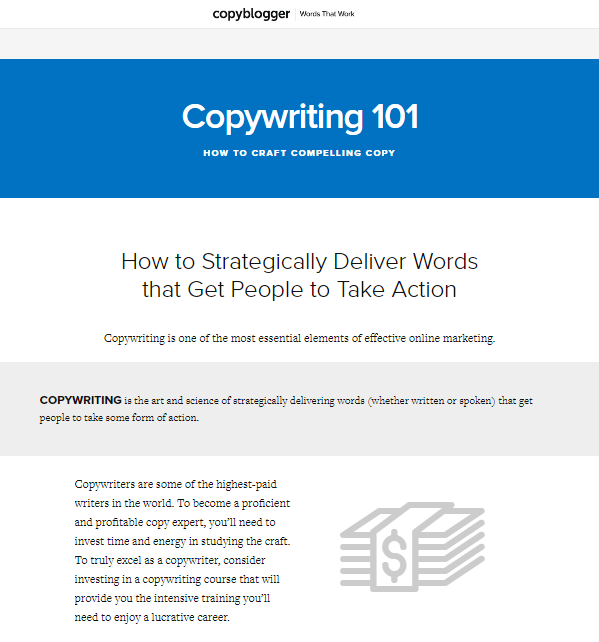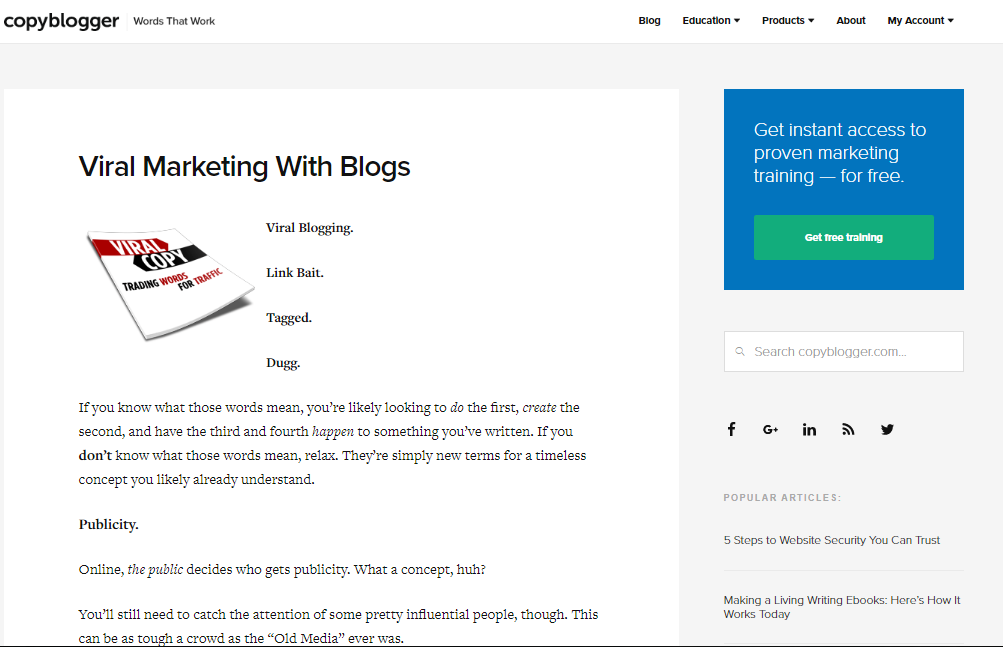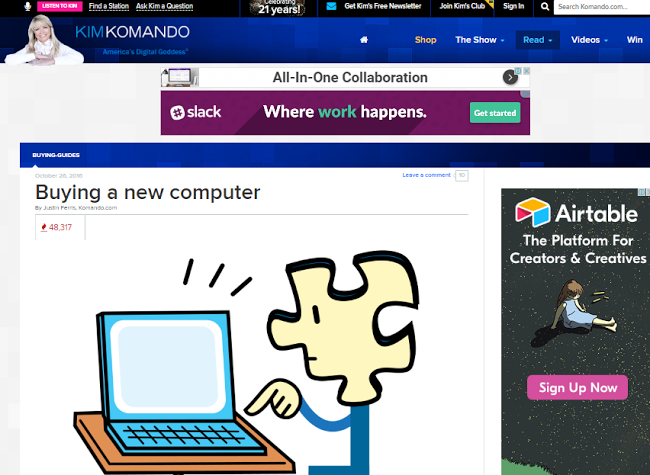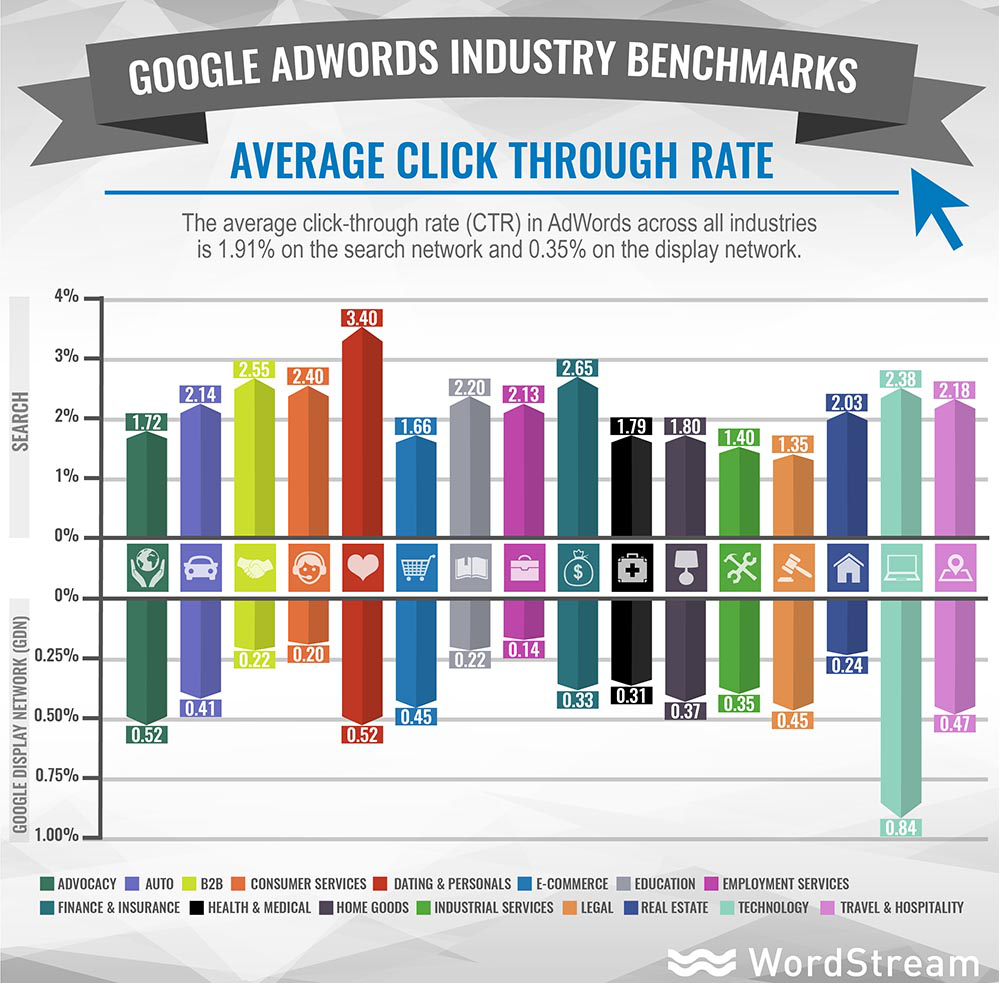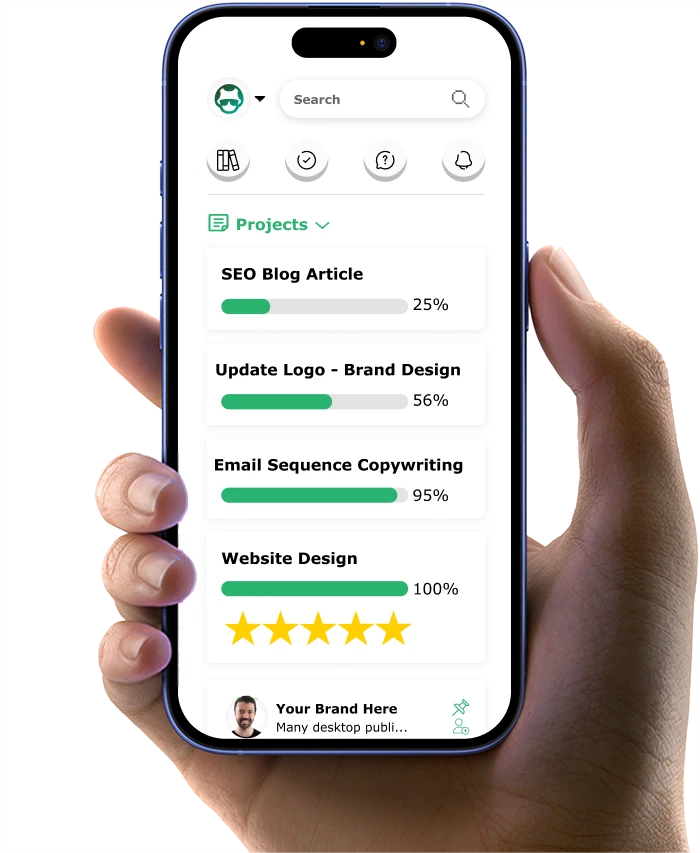Grow the TOP of Your Funnel? Learn What Cornerstone Content Is
If you don’t know what a word means, you usually look it up online, right?
But that doesn’t work if you’re searching for the definition of cornerstone content.
You see, cornerstone content has a slew of definitions. It seems that every marketing company defines this concept differently.
Most people try to make it sound like cornerstone content should supplement your About or Sales page.
But that makes no sense to me!
Cornerstone content should be content that is educational, evergreen, and relate to the product you sell without actually selling it.
Here at Growbo, I remember the first piece of cornerstone content I created, basically by accident.
Back in 2010, there was no content out there about sales funnels. If you Googled it, the only results you’d find would be related to an offline sales process.
I found the idea of sales funnels interesting, so I decided to write an article on the topic.
That article saw a lot of traffic. I couldn’t help but think that maybe it was time for my company to specialize in sales funnels.
We’d started as a web design company and were in the midst of switching to be a marketing company, so the idea fit. That’s indeed the direction our company ended up taking.
If you’re looking to create your own cornerstone content, you’re going to need one clear definition to work with.
In this post, I’m going to tell you what cornerstone content actually is.
I’m also going to explain which articles you should use as cornerstone content and why choosing the right keywords is so important. Finally, I’ll share some case studies of cornerstone content at work.
Let’s begin.
What Is Cornerstone Content?
Yoast. MakeaWebsiteHub.com. Performancing.com. Copyblogger. These are just some of the marketing resources that have defined cornerstone content in the past.
There may be common threads linking those definitions, but I don’t think any of them truly touch on what cornerstone content is. That is,
Really in-depth, valuable, evergreen content that’s often thousands of words long and attracts lots of links and traffic over time.
Take, for example, our 17 Best Sales Funnel Examples article. That was a rewrite of a piece we had originally published several years ago.
The article is super in-depth and incredibly valuable if you’re looking to create a sales funnel, and evergreen.
We’ve actually updated it a few times in order to keep it that way. But since the information in that article is so valuable, it’s worth taking extra time to keep it relevant.
That’s another key to cornerstone content. You have to invest in it over time and come back to it.
That may mean rewrites every few years. It also means linking back to the cornerstone content from your other blog posts when appropriate, to bolster the cornerstone article’s ranking in Google.
The end benefit of this?
Speaking from experience, the benefit is traffic that stacks over time to the tune of well over 100,000 unique visitors (yes, from this one piece of content) and over 10,000 new email subscribers as a direct result.
How to Decide Which Articles to Make Your Cornerstone Content
Now that we have the great definition debate out of the way, which of your articles should you turn into cornerstone content? Do you always have to write something from scratch or are rewrites of existing content okay?
The answer is, you can do both.
You can write new posts or you can dig back through your blog archives and choose which ones to rewrite. In fact, here at Growbo, we have a rewrite of this post in the pipeline.
If you decide to rewrite one of your older posts, it helps if the post is already seeing a good amount of traffic. This way your cornerstone content will be seen by more people right off the bat.
If you choose to write a new post, you can do so by creating a high-value article that you feel is missing in your industry, and let the market guide you. (Kind of how I did with my sales funnel article I mentioned in the intro.)
As I said, there wasn’t any content about sales funnels at the time I wrote my cornerstone piece, so I wrote some. This became my cornerstone content, and it turned out to be a market need.
Another approach would be to search for high-performing, high-traffic keywords and then use those as the skeleton of your article.
This article should be lengthy and authoritative: two trademarks of cornerstone content.
Tools to Use
Like many marketing processes, you can use tools to research keywords and curate ideas for your cornerstone content. These include:
- Google Keyword Planner: Find new keywords or research specific ones to see how well they’ll perform with Google Keyword Planner. This requires a Google AdWords account to use.
- Google Analytics: In Google Analytics, if you toggle over to the Behavior section and then click on All Pages, you can see the top 10 pages that have the most page views. Focus on the content that’s rising over time, like so.
You might want to revisit keywords from those popular posts or even rewrite the posts themselves.
- BuzzSumo: You can use BuzzSumo to see which content has the most traffic and is being most actively shared. This may also influence which keywords you use.
- Leadpages: Opt-ins and lead magnets are crucial in cornerstone content, either at the middle or the end (or both, depending on the length). These don’t need to be complicated; “download a copy of this article to read later” suffices. Leadpages is also a great tool for building landing pages.
- Growbo's "22-Point Perfect Blog Post Checklist": This free PDF, which is available by providing your email, will help you perfect your blog-writing strategy. Your cornerstone content will be evergreen and high-value if you follow this checklist.
The Importance of Keywords
It bears repeating: keywords are an integral part of your cornerstone content strategy. You need keywords with a high search engine volume, which you can find using the tools above.
Your keywords then become the skeleton of your cornerstone content, as mentioned. These give you ideas on how to structure your article.
It’s also important that you not use just any keyword. Since cornerstone content is evergreen, you have to think long-term during keyword selection.
Is your keyword a trendy new buzzword? If so, will it be relevant in a few years? Take that into consideration.
Both short and long tail keywords are fine, but don’t exceed five words (which is a basic rule of long tail keywords anyway).
If you need more pointers on keywords, my helpful guide on which keywords to use at the right time in your funnel is great supplementary material.
Examples of Cornerstone Content Success
Now that you understand what it takes to make your own cornerstone content, here are some great examples of companies using this content for more traffic and conversions.
1. Copyblogger’s Brian Clark Uses Cornerstone Content to Make Sales
Brian Clark at Copyblogger is one of a slew of marketers out there to come up with his own definition of cornerstone content. His means of using this content breaks down into three steps:
- Write the cornerstone content itself.
- Include microsites, eBooks, reports and other giveaways related to the content that also solve issues the reader is having.
- Craft personalized product offers to those readers.
This may sound a little too easy, but Clark has used cornerstone content to jumpstart his career.
Need some proof? Here it is: He’s number 1 in search rank for copywriting 101, he has 133,000 links to his content, and Copyblogger brings in an 8-figure income annually.
Here’s a look at the cornerstone content he’s been responsible for:
2. Kim Komando’s Computer-Buying Guide Earns Great Google Ranking and Major Backlinks
Everyone has to replace their computer at some point or another. If you Google “buying a new computer,” what will come up towards the top?
Kim Komando’s computer-buying guide of course, according to BuzzSumo.
Although not as long as cornerstone content traditionally should be, this is nonetheless a great resource for those in the market for a new computer (albeit one that has to be updated often).
So far, in a little over a year of being live, the article has garnered 76 backlinks.
3. Moz’s Intro to SEO Guide Goes Viral, Gets More Than Three Million Hits
Anyone can write an SEO guide, and many have. Yet few have probably had the same modicum of success as Moz and The Beginners Guide to SEO. Moz states in the beginning of the article that it has more than three million hits.
So how did they do it? Moz heavily promoted the guide on its homepage. They also offered a PDF version of the guide for those on-the-go to read later.
Not to mention, they’re SEO experts, so they no doubt used the right keywords for this high-value content.
If you search for “SEO guide” on Google right now, this is the top result.
4. WordStream Uses Google AdWords to Create Traffic-Generating Industry Benchmarks
WordStream, an online advertising tool, also works with companies to generate successful Facebook and AdWords campaigns through their software.
Of course, the numbers one company needs, like conversion rates or click-through rates, are not necessarily the numbers another one needs.
To accommodate for this change in metrics, WordStream decided to create a Google AdWords industry benchmarks article. This piece was created to help their audience determine what the best conversion metrics were for specific industries using Google AdWords.
WordStream included the average cost per action, average conversion rate, average cost per click and average click-through rate, all divided up by industry.
Here’s one of the graphics WordStream came up with.
Pretty cool, huh?
This graphic gave WordStream’s clients (and anyone reading this case study) specific numbers to aim for that were ideal within their industry.
It was something almost any business owner could reference again and again (evergreen), and extremely in-depth.
This article ended up bringing them traffic, links, and leads because their audience found it helpful, and the data wasn’t easily found elsewhere.
Conclusion
Need more help with your content marketing? Download my 22-Point Perfect Blog Post Checklist.
Cornerstone content, despite some definitions you may have read, is not a sales tool. Instead, it’s high-value, long-form, evergreen content that you can link back to and rely on again and again.
To review:
- Cornerstone content is not one-and-done. You have to be willing to maintain it and update the content every few years (and perhaps more often) so it remains relevant.
- The keywords you choose can land you major traffic. Use Google Keyword Planner and BuzzSumo to ensure your keywords knock it out of the park.
- Keep long-term relevancy in mind when selecting keywords. What’s trendy and “in” now might not be in a few years’ time.
- By making personalized product offers throughout your cornerstone content like Brian Clark does, you can take your content even further and potentially improve sales.
Do you have any published articles you could use as cornerstone content? If not, do you plan on writing one after reading this article? Let me know in the comments.
Keep Hustlin’, Stay Focused,
—Matt





